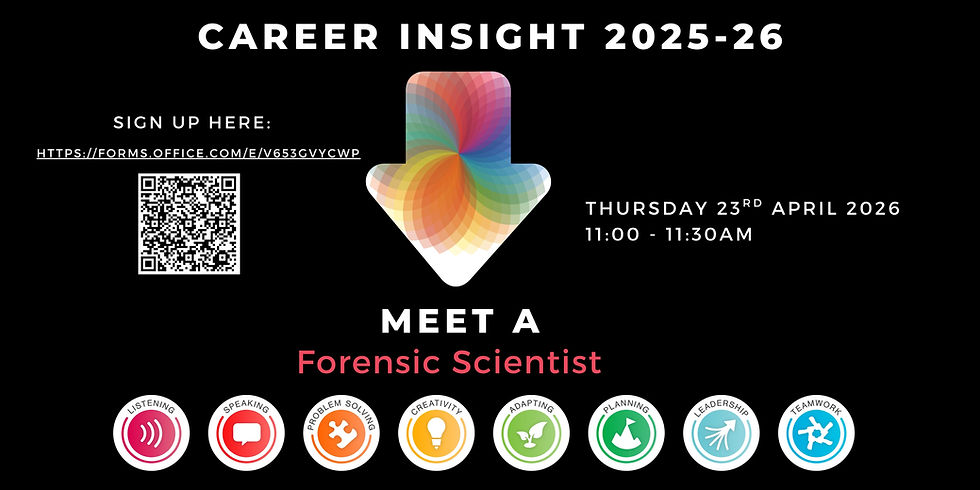Careers in the NHS (All Years)
- KGAElaineCook
- Feb 29, 2024
- 2 min read
Although doctors and nurses are the best known groups of employees in healthcare, there are many other roles. In fact, there are over 350 different careers within the NHS. This blog will give you a flavour of some of them, as well as a quick snapshot of the ongoing trends in the NHS workforce, as it prepares for the changing needs of the future population.
Patient-facing roles
If the thought of helping patients interests you, then you could consider one of the fourteen allied health profession roles, for example:
dietitian
paramedic
physiotherapist
diagnostic radiographer or therapeutic radiographer
speech and language therapist
There are also many patient-facing roles in healthcare science, especially under the physiological sciences. Some of these are:
audiologist
cardiac scientist
hearing aid dispenser
ophthalmic and vision scientist
respiratory physiologist and sleep scientist
If you have a science degree, you could also undertake a postgraduate qualification to become a physician associate. This is a relatively new position in the UK, modelled on a similar role that has been prominent in the US for several decades.
Pharmacy also offers patient-facing roles, as do the psychological professions.
There are so many different opportunities other than becoming a nurse or doctor!
The variety of roles
It is a myth that all the roles in the NHS are patient-facing. There are thousands of technical, managerial and scientific careers. For example, every hospital needs great people to help with IT; all staff depend on this, just like in any large organisation. They also need an array of people who are good with electronics to be able to service and repair the different medical devices and machines that are used. From patient monitors in the operating rooms, to ventilators in the intensive care units, these devices are vital.
It is also a myth that as a scientist, you’ll need to specialise in biology to work in the NHS.
There are various healthcare science roles such as: clinical technologists, radiotherapy physicists, as well as physical sciences and biomedical engineers, which rely on knowledge based on physics. Other roles require an understanding of chemistry.
There is a huge need for managers in the NHS. Some examples of these are: HR managers, service managers (who focus on the delivery of a particular department, e.g. A&E) and project managers.
There are more than 350 different careers in the NHS. Many work with patients while others work behind the scenes. What they all have in common is that they make a difference to people's lives.
To find the NHS careers that best suit you, all you need to do is answer some simple questions. Click HERE to start the quiz
For more information about careers in the NHS, visit www.healthcareers.nhs.uk









Comments